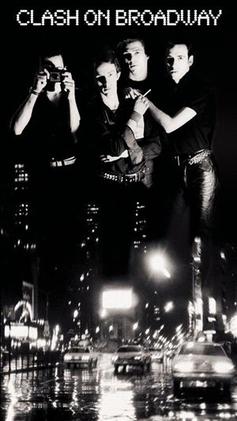Content
The set contains five previously unreleased tracks, two early demo recordings, and three live recordings, one of which had been released on a film soundtrack. Thirteen of the eighteen singles released during the time frame covered appear, leaving out "Remote Control", released as a single against the band's wishes, "English Civil War" and "I Fought the Law", both of which appear via live versions, as well as "Hitsville UK" and "Know Your Rights".
Disc one contains mostly recordings taken from the band's early singles, including the extended play single Capital Radio (1977), and their 1977 debut album. The four songs deleted from the British version of The Clash album and replaced by singles tracks for the American version—"Deny", "Protex Blue", "Cheat" and "48 Hours"—are included. Disc two focuses on tracks from the albums Give 'Em Enough Rope (1978) and London Calling (1979), and the extended play single The Cost of Living (1979). Disc three contains tracks from Sandinista! (1980) and Combat Rock (1982), with tracks from the latter including both edited and unedited versions.
This page is based on this
Wikipedia article Text is available under the
CC BY-SA 4.0 license; additional terms may apply.
Images, videos and audio are available under their respective licenses.
